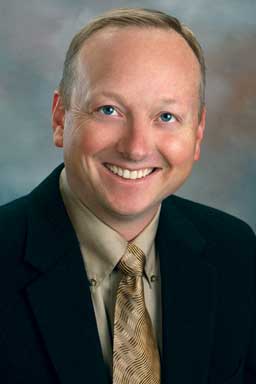President-elect’s message: Reliable knowledge
As I sit here in December 2009 to write this message for JSHAP, there has been a recent revelation of shared e-mails among climate researchers that infers climate data may have been purposely left out or ignored by scientists. Public reaction has been mixed – running the gamut from excited concern to doubt or complete avoidance – depending on the political stripes of the politician, activist group, and newspaper. At worst, this represents clear intent by a few to manipulate global socio-economic policies, and at a minimum, it reflects human bias which even in this modern day affects scientific process, judgment, and public trust.
Claude Bernard, French doctor, contemporary of Louis Pasteur, and “father” of modern experimental physiology, states in his book, “An Introduction to the Study of Experimental Medicine,”1 the following: “Men who have excessive faith in their theories or ideas are not only ill prepared for making discoveries; they also make very poor observations. Of necessity, they observe the preconceived idea, and when they devise an experiment, they can see, in its results, only a confirmation of their theory. In this way they distort observation and often neglect very important facts because they do not further their aim… But it happens further quite naturally that men who believe too firmly in their theories, do not believe enough in the theories of others. So the dominant idea of these despisers of their fellows is to find others’ theories faulty and to try to contradict them. The difficulty, for science, is still the same.”
Can we be experienced and observant, wise, yet open? There may be disagreement in AASV, too, over the range of medical approaches and interventions applied by our members in the pursuit of better pig health and lower cost of production. We each make attempts to practice medicine with the goals of safe food, satisfied clients, and pig well-being. Frequently, however, the bias of our own experience and internal datasets restricts our ability to study and consider alternatives presented by colleagues and competitors. So then, are we truly implementing knowledge or promoting opinion? Information should develop theories; theories should not develop information.
I attended my first AASV (then AASP) meeting in 1989 at Des Moines, on the invitation of Gary Dial. In that first year of veterinary school, Gary had taken me under his wing, hiring me to help with his program’s various projects. To be paid to learn while working with professors and graduate students at the U of MN was incredibly good fortune – and in AASV I continued to meet veterinarians who were always learning and open to something new! The 1989 meeting theme was grow-finish and it included Steve Henry’s Howard Dunne, “Assessing Grow-Finish: Why Is The System No Better?”2 Steve declared the system needed change, and two ideas that resonated with me were his focus on the bottom third of a group to decrease top-to-bottom variation and growth curve-feed utilization. I met Kent Kislingbury, who challenged us during his lecture, “Handling Finishing House Pneumonia”3 with “decisions must be economically sound first, and medically sound second.” Years later I would experience Kislingbury spreadsheets as he taught his young veterinary partner how to incorporate financial knowledge into veterinary approaches on the farm – making it work for the pig and the producer.
In practice, it is sometimes about science, but always about people. An effective plan on the pig farm comes from the confluence of agreement to need, a well-communicated idea, and simplicity of execution – all people issues. The reality we face today as veterinarians and leaders in pig care is that consumers not only don’t understand science very well, they also don’t want to make decisions based on science.
Jared Diamond, professor of geography at UCLA, is the author of the book “Collapse.”4 In it he reports on the histories of a select group of societies and their dependent interactions with the natural environment. The author’s goal is to understand how and why some of those cultures could exist and thrive while others perished – and draw insight to address questions facing our world today. This is a very different type of research than we pig vets are used to, and of necessity all retrospective. Dr Diamond’s description of science – “Science is often misrepresented as ‘the body of knowledge acquired by performing replicated controlled experiments in the laboratory.’ Actually, science is something much broader; the acquisition of reliable knowledge about the world.”4 Shouldn’t that be central to our quest – reliable knowledge?
As swine veterinarians, we have the opportunity to lead on many issues facing pig production and farming. We need science and experience to build our knowledge base as we seek to answer the right questions. I thank my AASV colleagues for the arguments, debates, and challenges shared since my very first meeting in 1989, and I look forward to many more! Scientists armed with reliable knowledge offer so much more to the debate than datasets and partial budgets, and are enormously more interesting to a community of non-scientists.
References
1. Bernard C. An Introduction to the Study of Experimental Medicine. New York, New York: Dover Publications, Inc; 1957.
2. Henry S. Howard Dunne Lecture. Assessing Grow-Finish: Why Is The System No Better? Proc AASP. 1989;139.
3. Kislingbury K. Handling Finishing House Pneumonia. Proc AASP. 1989;261.
4. Diamond J. Collapse. New York, New York: Penguin Books; 2006.
— Paul Ruen, DVM
